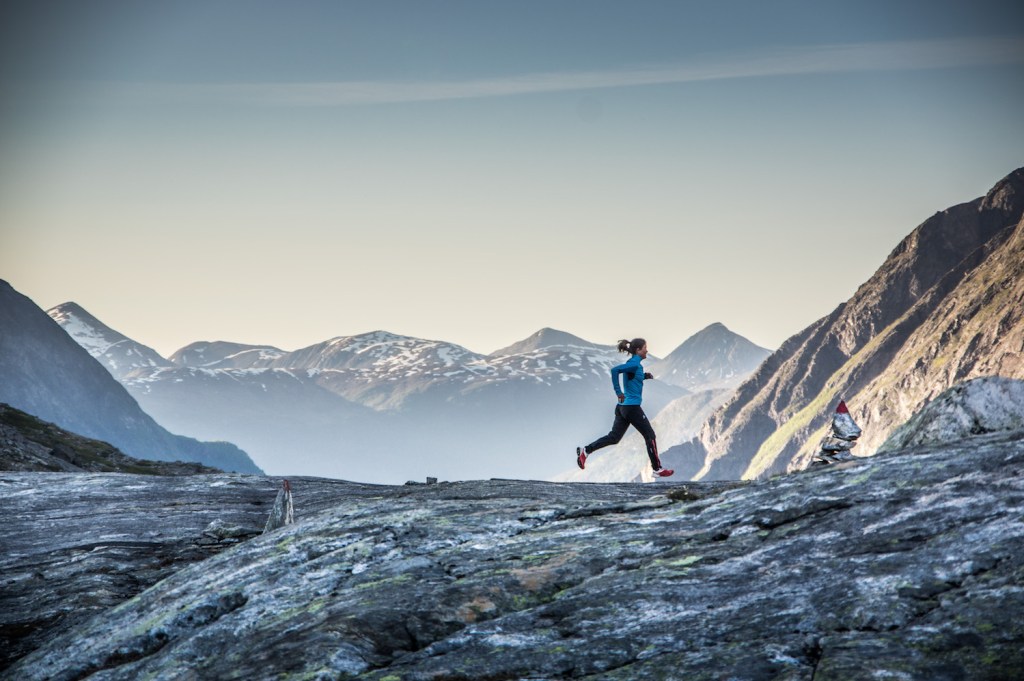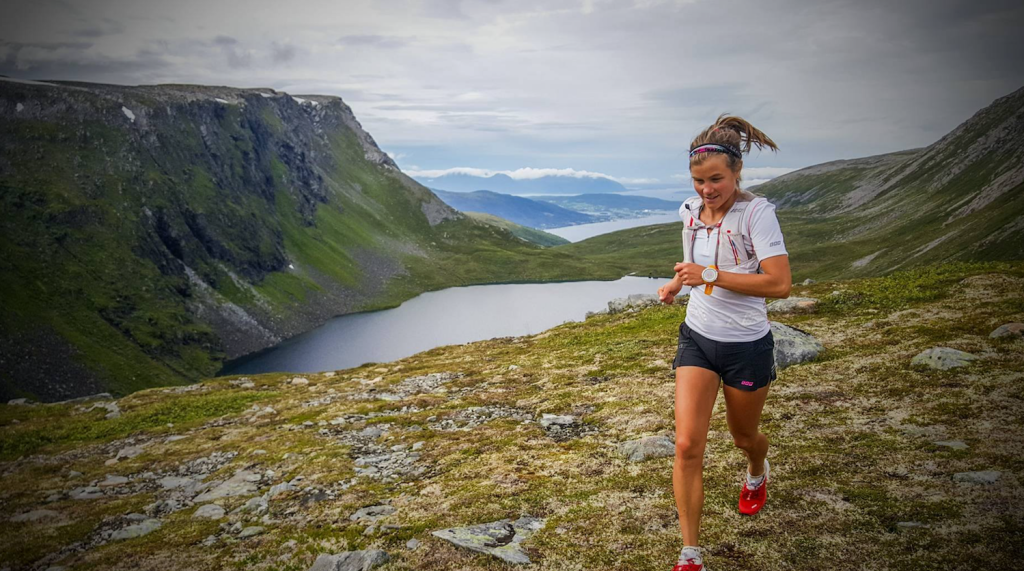In the middle of winning her first mountain marathon in 2010, Swedish endurance athlete Emelie Forsberg stopped for 20 minutes on a mountaintop to eat a piece of chocolate cake. That’s just the kind of athlete she is: talented and diligent, but never so rushed that she doesn’t stop to enjoy the moment. Two years later, Forsberg joined the Salomon International team, and in 2014, she won seven races and two world championships, including the Skyrunning Ultra World Championship.
Now, at 31, Forsberg competes in ski mountaineering races in the winter and spends her summers traveling for races and mountain summits. She lives on a small farm that she and her boyfriend, famed runner Kilian Jornet, bought in 2016 in Mandalen, Norway. The couple founded Tromsø SkyRace, which Forsberg co-directs. Following an ACL reconstruction after a collision during a ski mountaineering race in 2016, Forsberg bounced back to smash the course record on her way to win the Glen Coe Skyline race in 2017. Forsberg just published her first book, “Sky Runner: Finding Strength, Happiness, and Balance in Your Running.” We caught up with her to talk about knee injuries, farming and equal pay for female athletes.

When she’s not running up mountains, Swedish endurance athlete Emelie Forsberg lives on a farm in Norway.
REI: What was it like coming back from your knee injury?
Emelie Forsberg: I struggled and was fighting so much to get back to my ability. I was so focused on getting back to being strong and healthy again. I always put on skis in the winter and then start to run again in the spring. I have two seasons that I need to be in shape for, and after the accident, it took longer for me to build up the running mileage, which made me feel stressed. My focus now is more about trying not to stress. I love racing, but my main purpose of being where I am today is passion for the mountains. I want to keep that alive and still try to do what I can to race.
After your ski accident, you spent time in Rishikesh, India, to complete a yoga teacher certification. How has yoga affected your training and life?
I am really happy I went. I don’t think I would have gone there had I not had the injury. But, I thought, ‘Why not? I’m struggling. I can do rehab out there. I can be away for one month.’ I am happy for that experience and the time because I learned so much and it was really interesting to learn meditation. It was good to be so focused and learn a new skill.
How did you and Kilian first meet?
We met through Salomon. We were friends first and did a lot of trips and were spending time together. Now, we’ve been together for about five years.

Forsberg recently wrote a book on finding happiness and balance in running.
You recently built a farm garden. Tell us about your farming and what it means to you.
I love my farm. I really try to be more with nature. Kilian and I bought this farm in Norway with the forest and a place for a vegetable garden and a farmhouse if we want to get animals, which I would like to have. I have maybe 100 square meters of vegetables. I try to be as self-sufficient as possible. We have carrots, potatoes, spinach. We also have a lot of rhubarb and I make a lot of syrup. I boil it down with sugar and jar it up for the winter.
When did you start competing in ski mountaineering?
The same year that I started to run. I tried ski mountaineering skis and I realized, it’s the same as mountain running. I had heard about the sport before and didn’t want to buy the skis. Then, I won some money in a race, got a pair of skis, started doing races and realized I can’t live without this season. I did my first full season in 2014.
You once called out a race on social media for not having equal compensation for both men and women. Tell us about the issue.
Some races do not have the same prize money for men and women. This was a ski race in Europe, and I made some other examples of races because I wanted people to know about it. I think that trail running is not as equal [between men and women] as in other sports. I think that it’s important to stand up and start to change the idea behind it. If you talk to the women, of course, they put as much time and energy into training. They should have equal pay in prize money. As long as we do not have equal prize money, we will not have more women in these races.
Follow Forsberg’s adventures @TinaEmelie on Twitter, @tinaemelie on Instagram or emelieforsberg.com.


